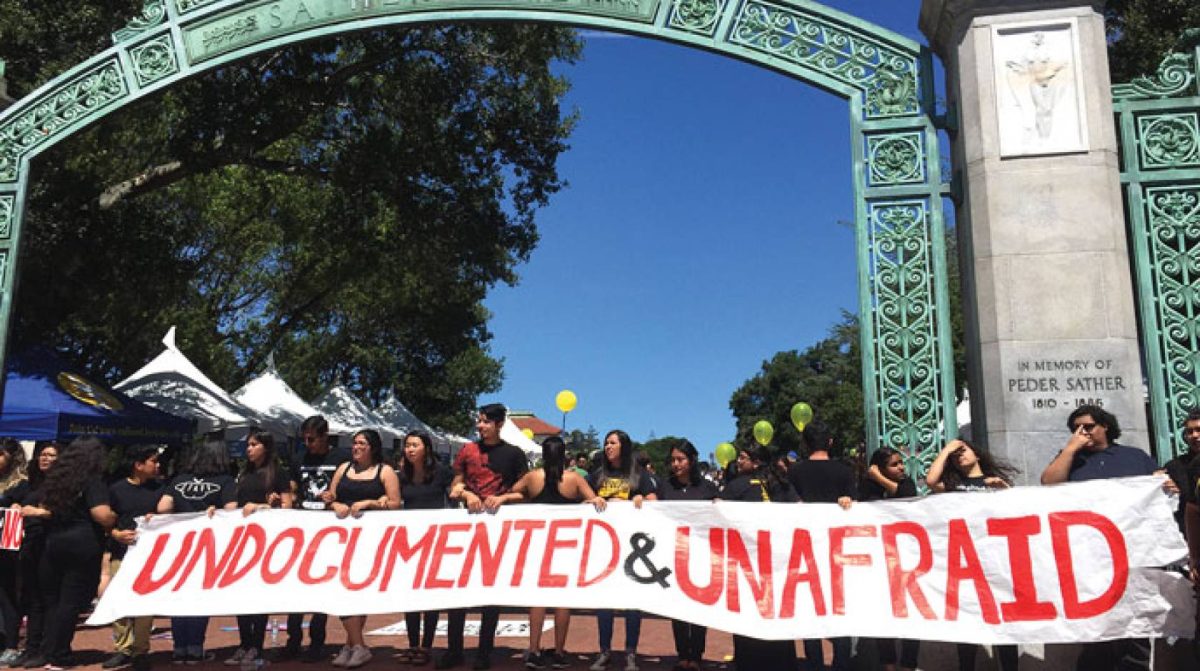Last week, Governor Gavin Newsom, vetoed Assembly Bill 2586, a decision that strikes at the heart of many undocumented students’ aspirations.
As someone who has personally experienced the uncertainty surrounding higher education opportunities, I can not help but feel like this veto is yet another step backwards. Instead of pushing forward to support the next generation, we seem to be reverting to pre-DACA times, when higher education felt out of reach.
Assembly Bill 2586, authored by Assemblyman David Alvarez, D-San Diego, would have directed the University of California, California State University and California Community Colleges systems to employ undocumented students.
Assemblyman Alvarez voiced his “profound disappointment” with Newsom’s veto, and that “students who are legally allowed to study at California’s public colleges and universities should be allowed to work to pay for their own education,” Alvarez wrote on X.
Mike Madrid, a GOP political consultant and expert in Latino politics, pointed out that Vice President Kamala Harris’s recent change to a more conservative stance on immigration might be influencing decisions like Newsom’s veto. Harris supported a bipartisan border security bill that was ultimately blocked, so it can be argued that Newsom may be trying to avoid any political fallout ahead of the upcoming elections.
But while political strategy may be behind this veto, the real victims are the students. Sadly, it’s not shocking that so many students who have spent their lives in limbo are caught in the crossfire of yet another political ploy. I remember graduating high school and feeling the weight of the unknown. Would I be able to afford college? Could I even apply? Would I ever be able to get a job? These questions did not just affect my decisions at an early age, but also impacted me emotionally and mentally. Instead of looking toward the future with hope and excitement, there was—and still is—a constant pressure from knowing that certain doors will remain closed.
A recent study from the University of California Civil Rights Project at UCLA and UC Davis School of Law shows the toll that these barriers take. Enrollment of undocumented students at UC and CSU campuses have decreased by half since the 2016-2017 academic year. This decline in admissions is tied to the “slow strangulation” of the Deferred Action for Childhood Arrivals (DACA) program, which once gave undocumented youth the protection and opportunity they needed to pursue higher education and work.
But the findings in the study are not surprising to me because I’ve seen firsthand how this struggle plays out. Without DACA, undocumented students face even greater hurdles in accessing well-paying jobs. Without legal work authorization, it becomes almost impossible for them to afford tuition, especially if they don’t qualify for in-state tuition. While the California Dream Act Application (CADAA) is available for students in California, it does not fully offset the cost of tuition for a full-time student. In the study it was found that the enrollment of undocumented students who received aid fell by 51% at UC campuses and by 48% at CSU campuses. An alarming decline when measured against other low-income student groups with similar academic backgrounds. AB 2586 wasn’t about giving undocumented students an unfair advantage over others; it was about giving a chance to apply and be considered. Without it, they aren’t even given that opportunity, making Governor Newsom’s decision feel like yet another blocked door.
The reality is that this veto sends a message that undocumented students, despite their hard work and potential, don’t deserve the same opportunities as their peers. It’s a message that directly contradicts the values California claims to uphold. As someone who once stood in those shoes, I can tell you this is about more than just an education – this veto dims the hope once again for many young people across the state who were hoping for a lifeline. But the decision to prioritize politics over the struggle of students is not surprising.
As the 2024 election approaches, the issue of immigration will be at the forefront of the conversation and will continue to be used for political gain. However, despite the challenges that we face, we will continue to try and carve our spaces within the academic world and will continue to advocate for change, ensuring that the doors to education remain open for everyone.


